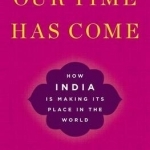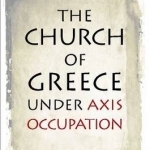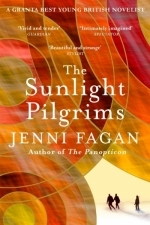Darren (1599 KP) rated 3 Days To Kill (2014) in Movies
Jun 20, 2019
Released by the CIA Ethan sets out on cleaning up his own personal affairs wanting to build a relationship with daughter Zooey (Steinfeld) through his ex-wife Christine (Nielsen) after years of times apart working. With everything going badly Ethan knows that it will become difficult but when fellow agent Vivi Delay (Heard) offers him a chance to live longer Ethan comes out of retirement for one last assignment.
Thoughts on 3 Days to Kill
Story – The story for this film tries to balance a dying man’s final months with his family and his CIA life that he has meant to have walked away from. The CIA story does feel very generic of this modern day slick hitman style which is all fine. The dying man’s wish story ends up feeling like an awkward comedy in places. The story also feels very long and doesn’t seem to end up deciding if it wants to be serious or not.
Action/Thriller – The action is all very good and entertaining with the opening sequence looking like it set the tone but in the end if just turns into another slick hitman film.
Characters/Performance – I can’t find anything wrong with Costner’s performance as well as Steinfeld or Neilsen, it is the Heard performance that doesn’t make sense because she doesn’t suit the character and the character doesn’t suit the movie. The movie tries to make all the characters fit into everyday experiences but for some reason Vivi character is wildly over the top for no apparent reason.
Settings – The settings are mostly all in Paris which all works for the film which is trying to make us have a location we want to visit but showing that crime can happen there I guess.
Special Effects – The Special effects are mostly used for the action sequences and they all come off to the level you need them too.
Final Thoughts –This is an overlong action thriller that ends up getting caught up in the middle of comedy too often for its own good.
Overall: Solid action film that starts too strong for its own benefits.

Our Time Has Come: How India is Making its Place in the World
Book
In the last 25 years, India-soon to be the most populous nation in the world-has experienced...
Beyond Shareholder Wealth Maximisation: Towards a More Suitable Corporate Objective for Chinese Companies
Book
Corporate objective, namely, for whose interests should a company be run, is the most important...

Thailand
Lonely Planet, Mark Beales, Tim Bewer and Joe Bindloss
Book
#1 best-selling guide to Thailand* Lonely Planet Thailand is your passport to the most relevant,...
Value Management in Healthcare: How to Establish a Value Management Office to Support Value-Based Outcomes in Healthcare
Book
Our current healthcare system's broken. The Organization for Economic Co-Operation and Development...

The Church of Greece Under Axis Occupation
Book
Axis forces (Germany, Italy, and Bulgaria) occupied Greece from 1941 to 1944. The unimaginable...

The Empress Dowager Cixi: The Concubine Who Launched Modern China
Book
Empress Dowager Cixi (1835-1908) is the most important woman in Chinese history. She ruled China for...
Guy Garvey recommended Catalpa by Jolie Holland in Music (curated)

Atlantis: Island of the Gods
Tabletop Game
Before the civilizations that we know of there was a great island, called by contemporary scientists...
Boardgames MythologyGames 2018Games
Hazel (1853 KP) rated The Sunlight Pilgrims in Books
May 25, 2017
Note: I did not finish reading this book.
It is winter 2020 and the world is facing the most extreme winter for over 200 years. Jenni Fagan’s The Sunlight Pilgrims explores the potential disastrous effects of climate change beginning with a new ice age set in the very near future, only four years away. With the North Atlantic drift slowing and temperatures around the world dropping to -40 degrees, the Earth’s inhabitants fear a pending apocalypse.
The story is largely set in Clachan Fells, a Scottish caravan park situated at the base of a group of mountains. Tin houses are not the most practical form of abodes for cold weather, let alone the worst snowstorms the world has ever seen. This is the situation the main characters of The Sunlight Pilgrims find themselves. Dylan MacRae has moved into a mobile home he did not know he owned until the recent death of his mother and soon makes friends with his neighbour Constance and her daughter Stella. Although only twelve years old Stella is more concerned about her identity than she is the fatal weather condition outside. Born a boy, Stella is uncomfortable in her body and struggles to get other people to accept that she is really a girl.
Surprisingly, the dystopian snow scene seems to be more of a backdrop to a different storyline featuring identity, family and romance. Dylan is a lonely man falling in love with the woman next door, however she is tied up with relationship problems of her own. Stella, whilst seemingly carefree, is desperate to be accepted for who she is and live a happy and secure life.
Jenni Fagan does an exceptional job of portraying the confusion, thoughts and emotions of a transgender child experiencing stigma amongst her peers. Yet Fagan also emphasises the potential acceptance of people in this situation through the reception received from Dylan who did not bat an eyelid on discovering the truth about Stella’s identity.
The Sunlight Pilgrims combines popular current affairs that are likely to attract a wide audience. Sadly as a story it falls short of mediocrity. Without a clear storyline it is a struggle to remain interested. The readers’ lack of enthusiasm for the characters and their individual worries makes it a challenge to reach the end. As I never made it to the final chapter I cannot say whether the conclusion is worth sticking around for. Mixed reviews on Goodreads suggest that enjoyment depends on the individual reader rather than the novel itself. I, however, cannot recommend this book.



